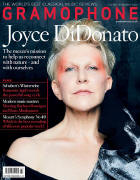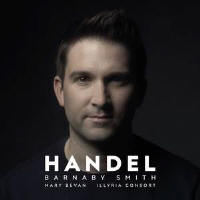Texte paru dans: / Appeared in: |
|
|
Outil de traduction |
|
|
Reviewer:
Tim Ashley Voces8’s artistic director, countertenor Barnaby Smith, goes solo here with an album of extracts from Handel’s operas and oratorios, along with Mary Bevan, who joins him for a handful of duets, and The Illyria Consort, who have a couple of orchestral numbers to themselves. In a disarming booklet note, Smith describes the album as being effectively a vanity project, albeit touchingly undertaken to provide his newborn son with an eventual document of ‘my pre-fatherhood voice’, though it’s by and large a fine recital, so we should be grateful to him for tackling it. The bulk of it was recorded last March, very much as a lockdown project, though the closing track, ‘Più amabile beltà’ from Giulio Cesare, was taped during one of the online LIVE from London concerts, of which Smith is also artistic director. He trained with Andreas Scholl, whose influence shows in his even steadiness of tone and well-nigh faultless sense of both legato and phrasing in the slower arias, which are the album’s chief glory. There’s a warm, easy sweetness in his upper registers, which makes ‘Ombra mai fù’ really appealing. ‘Verdi prati’ from Alcina is forthright rather than regretful, coolly accepting transience rather than mourning it, and Ariodante’s ‘Scherza infida’ is at once marvellously introverted and quite beautifully sung. The bravura arias, meanwhile, are done with admirable agility, if occasional expressive caution: a bit more devil-may-care bravado in Cesare’s ‘Al lampo dell’armi’ wouldn’t have come amiss, though the fluency and evenness of Smith’s coloratura impress in themselves here. His voice, meanwhile, wonderfully blends well with Bevan’s, and the pair of them sound radiant in ‘These labours past’ from Jephtha. It’s the long scene from Rodelinda, though, that is the high point among the duets, done with exquisite sense of line and capped by a ravishing double cadenza. There’s plenty of grace and detail in The Illyria Consort’s playing, including a superb bassoon obbligato, by turns grieving and consoling, in ‘Scherza infida’, and bright, almost impertinent-sounding oboes in the Queen of Sheba’s famous Arrival. Smith, meanwhile, should think about giving us another solo album, and a disc of duets with Bevan would also be most welcome indeed. |
|




